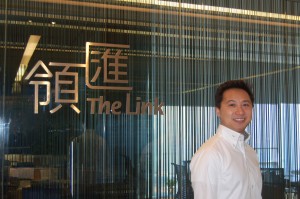Brian Ho Chi-kuen, a CSR campaigner, says the big Hong Kong corporations have embraced CSR but it has been more difficult to promote the concept to small and medium-sized businesses.

According to Ho, some companies see CSR as a kind of risk management, or as a form of charity but the more sophisticated companies realise that CSR contributes to value creation. The consensus among CSR practitioners and the companies themselves is that CSR makes good business sense.
A report by the British CSR watchdog Corporate Watch cites a study that estimates 96 per cent of Coca Cola’s value is “intangibles” such as goodwill, brand value and intellectual capital. According to an article in a publication of Britain’s Chartered Institute of Public Relations, intangibles also account for 53 per cent of the value of the Fortune 500 companies.
Increasingly, investors are betting that more socially responsible businesses will be more secure investments. “Investors are also beginning to pay attention,” says Ho. “For instance some institutional investors will look at a company’s CSR performance because these investors are interested in long-term rather than short-term gains,” says Ho.
It would seem then, that CSR is a win-win proposition for both businesses and investors. Its proponents say it also benefits workers, customers, communities and the environment if companies are committed to operating in a more socially and environmentally friendly way. However, critics take a different view. They see CSR as a public relations strategy. Fahmi Panimbang, the programme coordinator (research) of the Hong Kong-based Asia Monitor Resource Centre (AMRC) says CSR programmes are aimed at averting the backlash against corporate power. Their ultimate aim is to maximise a company’s profits.
“In fact, CSR has brought more profits, benefits and legitimacy all at once to the corporation,” says Panimbang.
Liang Pui-kwan, a project officer for Students and Scholars Against Corporate Misbehaviour (SACOM), a Hong Kong NGO, says there is nothing inherently wrong with making a profit but that companies need to do so ethically. “If the production cost involves no person and no environment, you can then maximise your profits. But the reality is the production does include these things and we need to care about and protect them,” says Liang.
SACOM’s work is focused on monitoring whether companies’ compliance with their own codes of conduct and CSR policies in their supply chains. They mainly look at factories in mainland China. Liang says their investigations show the monitoring done by companies themselves, or firms hired by them, are inadequate and not truly independent. “To SACOM, CSR is just PR,” she says.
For Calvin Kwan, the general manager, sustainability, of The Link REIT, there is no problem with CSR being a public relations strategy, at least at the beginning. However, he says companies should evolve and mature beyond seeing CSR as a PR strategy to seeing it as business philosophy. He says CSR is essential to the success of the business.

“We don’t unfortunately, build and develop our properties and then sell them. We own properties and we manage them, so it’s really close to our heart in terms of being linked to the community. The success of our business relies on the community being engaged, successful, and part of our decision making process,” says Kwan.
But not all CSR activities are appreciated by the public. Ironically, an initiative launched by The Link in 2012 was lambasted. The campaign, called “Link the Tastes” was meant to showcase traditional and renowned restaurants, hidden gems and distinctive old shops in its malls. But instead of evoking nostalgia and goodwill, the campaign triggered an outpouring of criticism over rent rises in the malls operated by The Link, which citizens and shopkeepers alike blamed for forcing local businesses to move or close. In the end, the company was forced to terminate the campaign “in the interest of social harmony”.
While companies present CSR as a win-win philosophy, it is clear that some of the communities they work with disagree. AMRC’s Fahmi Panimbang says CSR has not brought any real changes. “Companies may claim their positive impact, but in fact they are the ones who benefit most from CSR,” says Panimbang.
However, the fact that companies have CSR policies mean the public can see if they live up to their side of the bargain and hold them to account. For instance, SACOM adopts a “name and shame” strategy to exert pressure on companies. Project Officer Liang Pui-kwan says this is a way to force companies to fulfill their CSR obligations. Consumers too, should take a proactive approach by keeping an eye on whether companies behave responsibly towards their workers and the environment.
For Bobby Tse, the managing director of the social enterprise, Sowers Exchange, CSR programmes that focus solely on charity only reinforce ideas that communities are begging for help. However, he thinks CSR can provide opportunities for companies to do more than mere philanthropy.

His group aims to help corporations invest in the community by supporting grassroots social enterprises by offering them their business expertise. The idea is to empower the grassroots groups by helping them to run their operations more efficiently.
Myriam Bartu, the founder of Enrich, the NGO that promotes financial literacy among migrant workers in Hong Kong is succinct when it comes to companies and CSR. “It is better that companies do [CSR] than they don’t.”
“Who has the responsibility on CSR?” asks Bobby Tse, “I would say everyone.”
Edited by Louie Cheng











































what a polish image project for business done by varsity….